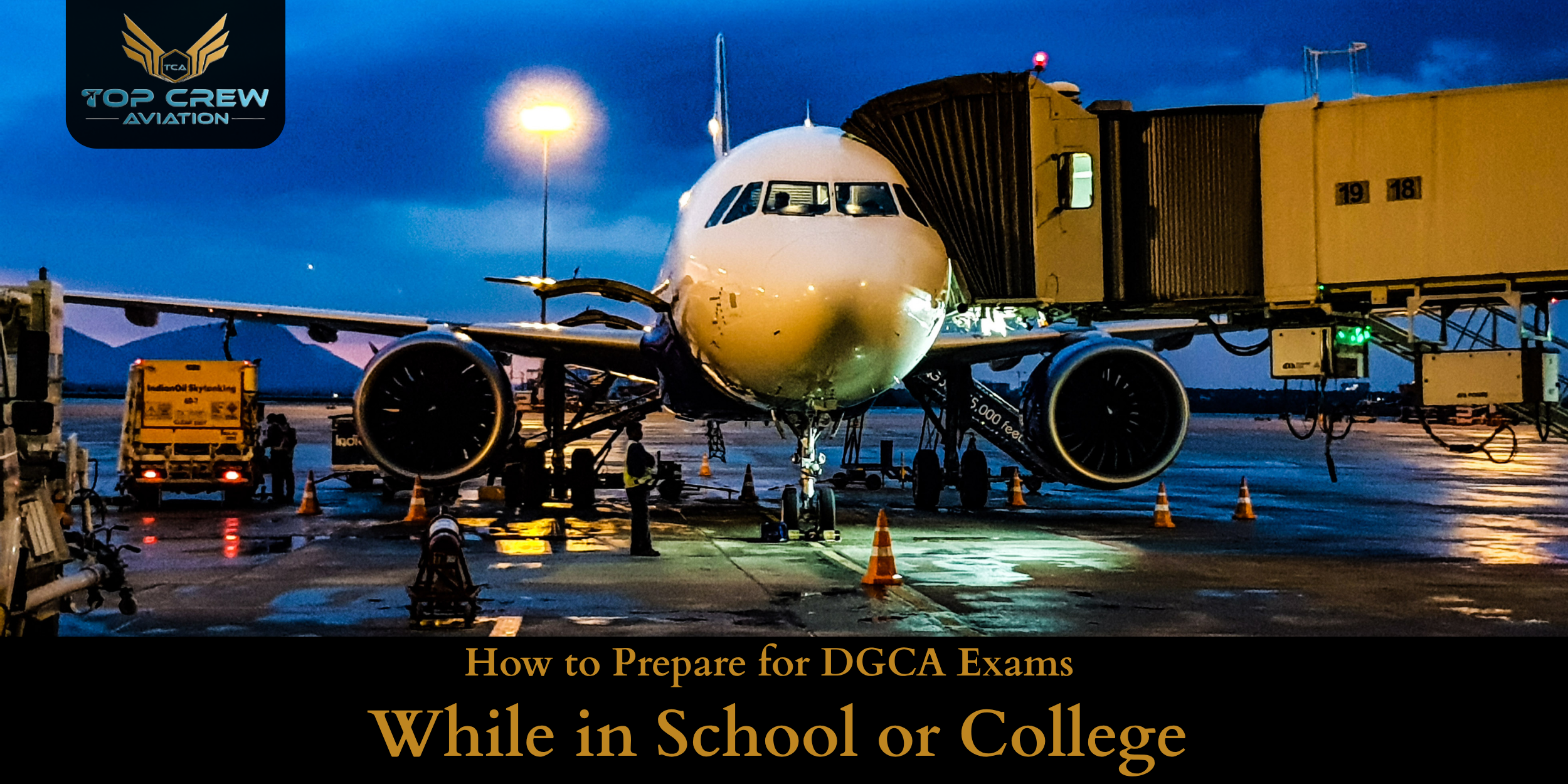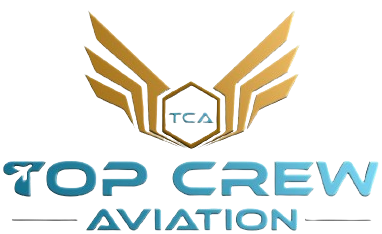
If you’re someone who dreams of becoming a pilot and flying high across the skies, it’s never too early to begin your aviation journey. One of the smartest decisions you can make is to start DGCA exam preparation while still in school or college. Knowing how to prepare for DGCA exam early not only gives you a strong academic foundation but also helps you build confidence and save time when you officially begin pilot training.
The Directorate General of Civil Aviation (DGCA) conducts important exams required to become a certified pilot in India. These exams are essential for obtaining both a Commercial Pilot Licence (CPL) and a Private Pilot Licence (PPL). Whether your goal is to fly commercial airlines or private aircraft, early preparation offers a major advantage in understanding the syllabus, mastering the subjects, and becoming exam-ready.
In this detailed guide, we’ll explore everything you need to know to prepare for DGCA exams while you’re still in school or college. From understanding the exam structure and syllabus to smart study strategies, resources, and tips, this is your complete roadmap to success in aviation.
What is the DGCA Exam?
The DGCA (Directorate General of Civil Aviation) is the central authority in India that regulates civil aviation. One of its core functions is conducting written and oral examinations for issuing different types of pilot licenses. The most common DGCA exams are for:
- PPL (Private Pilot Licence): For flying light aircraft for personal or recreational use.
- CPL (Commercial Pilot Licence): Required to work as a professional pilot in airlines or private charters.
- ATPL (Airline Transport Pilot Licence): Required to become the Captain of commercial aircraft.
These exams test both your theoretical knowledge and your practical flying skills. However, you can complete the theoretical exams before enrolling in a flying school, which is where starting during school or college becomes a significant advantage.
Why Start DGCA Preparation in School or College?
Starting early is one of the smartest moves you can make as a future aviator. Here’s why:
- Better Retention and Learning: Students tend to learn and absorb new concepts more quickly. Subjects like meteorology, navigation, and aircraft systems can be complex, but if you start early, you can understand them at your own pace without pressure.
- More Time to Prepare: By starting in school or early college, you have months or even years to cover the entire syllabus gradually. You don’t have to rush your studies like others who start just before joining a flying school.
- Save Time and Money: Clearing DGCA theory exams beforehand can shorten your flying school duration and save coaching costs. Some schools even reduce fees if students have already passed theory papers.
- Balance with Education: Since the exams can be attempted without finishing your degree, you can prepare alongside your 10+2 or college curriculum, especially if you’re good at time management.
DGCA Exam Syllabus Overview
The DGCA Exam Syllabus includes six major subjects that you must study. Understanding these early helps you know what to expect in the exams and build the right preparation strategy.
| Subject | What You’ll Learn |
| Air Regulations | Indian & international aviation laws, rules, ICAO standards, air traffic control |
| Aviation Meteorology | Weather patterns, forecasting, cloud types, winds, visibility, turbulence |
| Air Navigation | Map reading, route planning, radio navigation, GPS, distance and fuel calculations |
| Technical General | Aircraft systems including engines, instruments, electrical and hydraulic systems |
| Technical Specific | Aircraft-specific systems (depends on the aircraft you’ll fly) |
| Radio Telephony | Communication with Air Traffic Control (ATC), emergency codes, phraseology |
Step-by-Step Guide: How to Start DGCA Preparation Early
Step 1: Create a Realistic and Consistent Study Plan
Having a detailed and organized study timetable is key when you’re balancing school or college classes. Don’t try to study everything at once. Break your week into small study sessions focused on one subject at a time.
- Assign specific hours during evenings or weekends.
- Study one subject at a time for 2–3 weeks.
- Use monthly checklists to track what you’ve completed.
- Make room for revisions, mock tests, and breaks.
Pro Tip: Even 1–1.5 hours per day for 4–5 days a week is enough if started early.
Step 2: Use the Right Study Materials
Selecting the right study materials is one of the most crucial steps in preparing for DGCA exams. Many students waste valuable time on outdated notes or unreliable sources, which often leads to confusion and poor performance.
At Top Crew Aviation, we recommend only the most trusted, DGCA-approved resources that align perfectly with the latest syllabus and exam pattern. These materials help you build a strong conceptual foundation and boost your confidence.
Standard Textbooks Recommended by Toppers:
- Trevor Thom—Aviation Meteorology
- P. C. Kumar—Air Regulations
- Oxford Jeppesen Manual—Air Navigation
These books offer in-depth explanations and complete syllabus coverage, helping you grasp even the most technical topics with clarity.
Step 3: Practice DGCA Mock Tests and Previous Papers
DGCA exams are not just about reading — you must master MCQs, diagrams, and time-bound answers.
- Solve at least 10–15 previous year question papers per subject.
- Time yourself to simulate the real exam conditions.
- Analyze your mistakes and revise weak areas.
Practicing regularly improves your speed, accuracy, and confidence, especially in high-scoring topics like navigation calculations and meteorological charts.
Step 4: Join Study Groups or Online Communities
Studying alone can become monotonous. By joining pilot aspirant groups (online or offline), you gain access to:
- Shared study notes
- Doubt clearing with peers
- Study accountability and motivation.
- Latest updates on exam changes or DGCA circulars
You can find such groups on Facebook, Telegram, and aviation forums.
Step 5: Work on Weak Subjects with Extra Focus
Everyone has strong and weak areas. You might be great at maps but confused by weather codes — and that’s okay. The goal is to identify your weaker topics early and:
- Re-watch those topic videos multiple times.
- Use diagrams and visual memory tricks.
- Seek help from instructors, senior students, or online Q&A forums.
Step 6: Prioritize Your Health and Mindset
Your health and mental well-being play a massive role in your exam performance.
- Sleep at least 7–8 hours per night.
- Eat a balanced diet (especially during exam week)
- Take short breaks every 45–60 minutes during study sessions.
- Avoid cramming late at night.
Also, try meditation or yoga. A calm and alert mind will help you perform better in both theory and practical flying later on.
Step 7: Consider Joining a DGCA Ground School (Optional)
If you’re seriously committed to an aviation career, consider joining a DGCA-approved ground school part-time while still in college.
Benefits:
- Get taught by licensed instructors
- Learn exam tricks and subject clarity.
- Be guided through live mock tests and practical examples.
Some top-rated institutes offering flexible or online classes include Indira Gandhi Institute of Aeronautics, Top Crew Aviation, and Maverick Aviation.
Ideal Preparation Timeline for Students
| Stage | Focus Areas |
| Class 11–12 | Focus on Physics & Math (essential for CPL), start learning basics of Meteorology and Air Regulations |
| 1st Year College | Focus on Physics & Math (essential for CPL), start learning basics of Meteorology and Air Regulations |
| 2nd Year College | Practice mock tests, revise subjects, attend weekend aviation classes if possible |
| Final Year | Attempt DGCA exams, apply for medical tests, prepare for flight school admissions |
Final Thoughts
Becoming a pilot is not just about having a dream — it’s about building that dream with a solid plan. And that plan can begin right now, even if you’re still in school or college. With a clear understanding of the DGCA syllabus, consistent effort, smart study habits, and the right resources, success in aviation becomes much more achievable.
If you’re wondering how to prepare for DGCA exam, the answer lies in starting early, staying focused, and being well-informed. Early preparation gives you the edge when it comes to flight school admissions, exam readiness, and starting your pilot career with confidence.
Stay committed, stay organized, and always remember why you chose this path. Your aviation journey is ready for takeoff — it all begins with preparation. Start today, fly tomorrow!
Suggestion URL :-
Frequently Asked Questions
No FAQs found.



